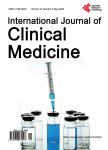Clinical Predictors of Prolonged Hospital Stay after Acute Stroke: Relevance of Medical Complications
Clinical Predictors of Prolonged Hospital Stay after Acute Stroke: Relevance of Medical Complications作者机构:Cerebrovascular Division Department of Neurology Capio-Hospital Universitari del Sagrat Cor Universitat de Barcelona Barcelona Spain Unit of Organization Planning and Information Systems Consorci Sanitari del Maresme Badalona Spain
出 版 物:《International Journal of Clinical Medicine》 (临床医学国际期刊(英文))
年 卷 期:2012年第3卷第6期
页 面:502-507页
学科分类:1002[医学-临床医学] 100214[医学-肿瘤学] 10[医学]
主 题:Medical Complications Length of Hospital Stay Stroke
摘 要:Purpose: This study aims to identify clinical predictors of prolonged hospital stay after acute stroke based on data collected from a prospective hospital-based acute stroke registry. Methods: All patients with first-ever ischemic stroke and primary intracerebral hemorrhage included in the Sagrat Cor Hospital of Barcelona stroke database over a 17-year period were assessed. Prolonged hospital stay was defined as hospitalization for longer than 12 days after admission. Demographic data, cardiovascular risk factors, clinical factors, neuroimaging findings, and outcome were compared in patients hospitalized for more or less than 12 days. Logistic regression analysis was used to assess the independent influence of statistically significant variables in the bivariate analysis and duration of hospitalization. Results: Of a total of 3112 acute stroke patients included in the study, prolonged hospital stay was recorded in 1536 (49.4%). Male sex (OR = 1.16), limb weakness (OR = 1.79), vascular complications (OR = 2.68), urinary complications (OR = 2.56), and infectious complications (OR = 1.78) were independently associated with longer stay, whereas symptom free at discharge (OR = 0.45) and lacunar infarction (OR = 0.43) were inversely associated with prolonged hospitalization. Conclusion: In-hospital medical complications (vascular, urinary, and infectious) are relevant factors influencing duration of hospitalization after acute stroke. Therefore, prevention of potentially modifiable risk factors for medical complications is an important aspect of the early management of patients with stroke.



